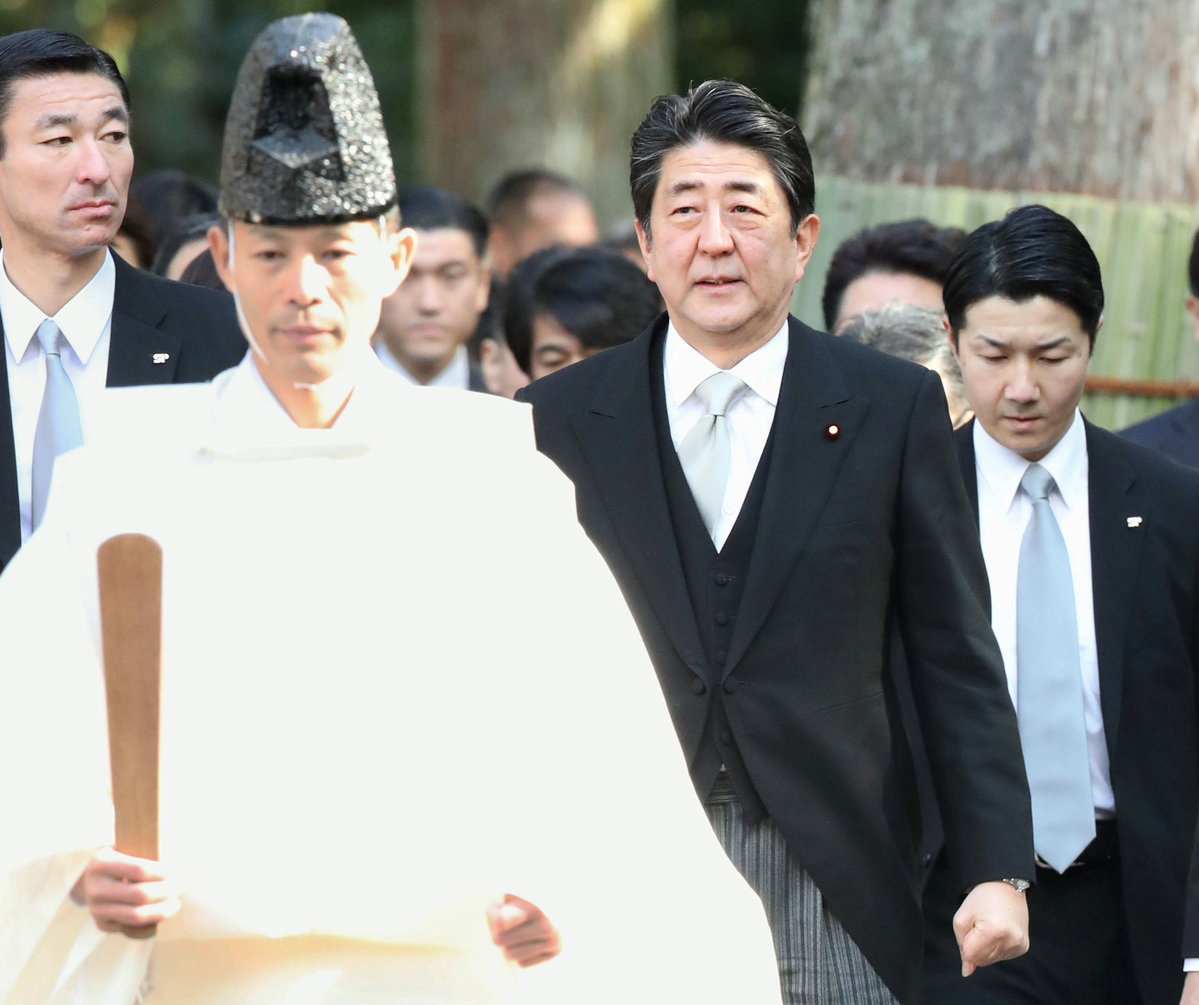Abe predicts progress in Constitution bid


Japanese Prime Minister Shinzo Abe said on Thursday he expects progress to be made this year in the debate over revisions to the Constitution.
Speaking at his first news conference of 2018, held in Ise, Mie prefecture, Abe said he wants to present to the public what shape the Constitution should take.
He added that Japan is facing the most severe security environment after World War II, and he is committed to strengthening the nation's defense capabilities - not just extending existing practices - to protect Japanese people.
Abe aims to see a revised Constitution come into force in 2020, when Tokyo is to host the Summer Olympics, and has called for a clear definition of the existence of the Self-Defense Forces in the Constitution as a key topic of discussion.
The ruling Liberal Democratic Party is mulling adding to the Constitution a clause specifying that the SDF is "a minimum necessary level organization with force", according to the Mainichi Shimbun newspaper.
Lyu Yaodong, a researcher of Japanese studies at the Chinese Academy of Social Sciences, described Abe's claim that the SDF "is not part of combat power" as word games aimed at covering up his military ambitions.
Once the prime minister succeeds in the amendment, it will affect the security of Northeast Asia and the related region, Lyu said.
"Therefore, it is particularly crucial whether Japan's opposition party can form a sound and comprehensive draft of the amendment," he said.
"From Japan's recent announcement to upgrade Izumo into an aircraft carrier and the import of the US-built Joint Strike Fighter F35-B to Abe's constitution amendment proposal, it reveals Tokyo's ambitions to strengthen its military capabilities step by step."
Michio Hamaji, a Japanese businessman and political campaigner, said Japan's Constitution should be the role model for the rest of the world for outlawing war as a means to settle international disputes involving the state.
The ruling coalition of LDP and Komeito has captured two-thirds of the seats in two chambers of the parliament, known as Diet, the amount required to proceed with a constitutional revision. Any revision should also be subject to approval by a referendum.
The prospect of a constitutional amendment winning a majority of votes in a referendum are still nowhere in sight.
An opinion poll by Japan's Jiji Press on Dec 15 showed 68 percent of respondents were opposed to the Diet making any constitutional amendment proposal during its ordinary session, which will start on Jan 22.
The survey also found 51 percent were against amending the supreme law in haste, while 17 percent opposed revisions in principle.
Even among supporters of the LDP, 50 percent of respondents rejected the proposal to revise the Constitution this year.
Contact the writers at [email protected]

































